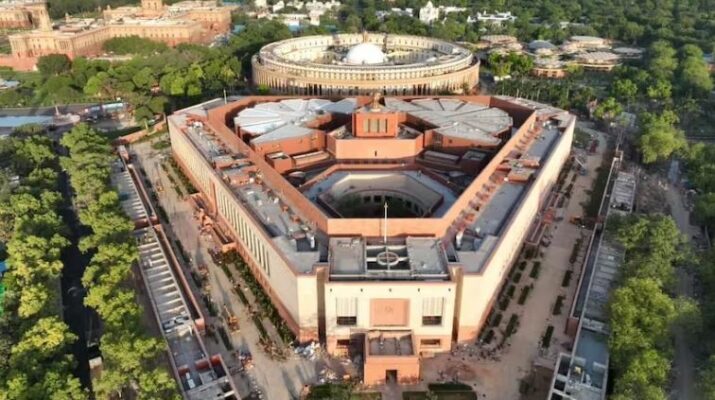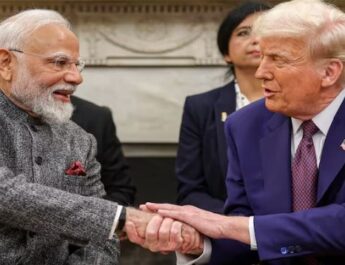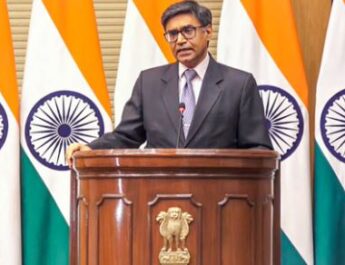Rift between Governor and the State government
● Tamil Nadu Governor R.N. Ravi triggered a fresh row in the ongoing rift between him and the State government by refusing to read out the customary inaugural address of the Legislative Assembly for 2024 .
● Amid tussle with Tamil Nadu Govt, the Governor of the State omitted certain parts of govt-approved speech, citing disagreement on ‘moral and factual grounds’.
Office of Governor:
● Article 153 – There shall be a Governor for each State. However, one person can be appointed as Governor for two or more States. [The Constitution (Seventh Amendment) Act, 1956 (w.e.f. 1-11-1956)].
Eligibility:
● Only Indian citizens above 35 years of age are eligible for appointment to this office.
Appointment:
● The Governor holds office for a term of 5 years from the date on which he enters upon his office. This term of 5 years is subject to the pleasure of the President.
● Further, he can resign at any time by addressing a resignation letter to the President.
Conditions of Governor’s office:
● The Governor shall not be a member of either House of Parliament or of a House of the Legislature of any state specified in First Schedule.
● The Governor shall not hold any other office of profit.
Functions and Powers of Governor
Executive Powers:
● The executive power of the State is vested in the Governor. He shall exercise the executive power either directly or through officers subordinate to him. The expression “Officer subordinate to him” includes the Council of Ministers of the State.
● Under Article 164, the Governor is empowered to appoint the Chief Minister and other members of the Council of Ministers.
● The Governor is responsible for the appointment and removal of various state officials.
Legislative Powers:
Under Article 174
● The Governor summons and prorogues sessions of the state legislature (Vidhan Sabha).
Under Article 176 , Special Address by the Governor:
● He addresses the state legislature at the beginning of each legislative year and on other occasions.
● The Governor may also dissolve the state legislative assembly in certain situations , under Article 174 (2).
● Eg- under Situational Discretion the Governor may dismiss the Council of Ministers on an inability to prove confidence in the State Legislative Assembly, dissolve the State Legislative Assembly when it looses its majority etc.
Administrative Powers:
● The Governor has control over the state administration, including the power to issue ordinances when the state legislature is not in session, under Article 213.
Judicial Powers:
● The Governor appoints the Advocate General of the state.
● Under Article 161, He has the power to grant pardons, reprieves, respites, or remissions of punishment or to suspend, remit, or commute the sentence of any person convicted of any offense against any law relating to a matter to which the executive power of the state extends.
● The Governor cannot pardon death sentence, but he may commute the sentence.
Discretionary Powers:
● Under Article 201 the Governor may reserve certain Bills passed by the State Legislature for the consideration of the President, the President may adopt one of the three courses:
● (1) He may assent to the Bill;
● (2) He may withhold assent to the Bill; or
● (3) He may, where the Bill is not a Money Bill, direct the Governor to return the Bill for reconsideration by the House or Houses of the State Legislature.
● When a bill is so returned, the House or Houses have to reconsider it within a period of six months. If it is again passed by the House or Houses, it shall be presented again to the President for his consideration.
● When a Bill is presented to the President for the Second time, after its reconsideration by the House or Houses, he is not bound to grant assent to it.
● He can use discretion in various situations, such as recommending the President’s rule in the state under certain circumstances.
Upholding Constitution:
● The Governor acts as a guardian of the Constitution and ensures that the state government functions within the constitutional framework.
● He is expected to act impartially and without bias, serving as a check on the state government’s actions.
Debate on the Role and Power of Governor
Federal Structure vs. Unitary Tendencies:
● Governor acts as a vital link between the Union government and the states, ensuring uniformity and stability in governance across the nation.
● Critics raise concerns that the office of the Governor can sometimes tilt the balance towards a more unitary form of government, eroding the autonomy of states and centralizing power in the hands of the Union government.
Discretionary Powers:
● The discretionary powers vested in the Governor, such as the power to recommend President’s rule, dissolve state assemblies, or reserve bills for the President’s consideration, have been contentious as, it sometimes poses a threat to the federal character of the Indian Union.
● Centre’s visible arbitrariness in misusing such constitutional office has been the subject of acrimonious debates and divergent opinions in the country.
● While some argue that these powers are necessary to maintain constitutional balance and ensure proper governance in exceptional circumstances, others contend that they can be misused for political ends, undermining democratic principles as the abuse of the power under Article 356 by the Central Government is replete in the political history of the country. This has resulted in the cementing of centralized forces and the disaffection of constituent states towards the federal character of the Indian Polity.
Conflict with State Governments:
● The relationship between Governors and state governments, particularly those led by opposition parties, often leads to conflicts and controversies.
Role in Upholding Constitutional Values:
● Proponents argue that the Governor serves as a guardian of the Constitution, ensuring that state governments adhere to constitutional principles and norms.
● However, critics question whether Governors always uphold constitutional values or if their actions are influenced by political considerations.
Need for Reforms:
● Many experts advocate for reforms in the appointment process and powers of Governors to enhance their impartiality and effectiveness.
Suggestions by Sarkaria commission
● There should be a procedure of consulting the Chief Minister of the State, the Vice-President of India and the Speaker of Lok Sabha in the process of appointing a Governor.
● The State governments must be involved in the appointment of the governor with the formation of panels.
● Governors must be allowed to complete five years of their term in the office.
● The individual is required to be an eminent person.
● It is recommended that an individual appointed as the Governor must be from outside the state of appointment.
● A detached person who has never indulged in active or local politics will be eligible for the post of governor.
● The governor, after demitting the office, shall not be considered eligible for any other appointment or Office of Profit under the government.
● Post-retirement benefits must be ensured to the person who held the position of governor.
Judicial interpretations on the Role of the Governor
SR Bommai Case (1994):
● This landmark case established principles regarding the discretionary powers of the Governor in dismissing a state government and imposing President’s rule.
● The Supreme Court held that the Governor’s decision to recommend the President’s rule should be based on objective material and that it could be subject to judicial review.
● The court emphasized that the Governor should not act arbitrarily or on the basis of extraneous considerations.
Nabam Rebia Case 2016:
● The SC held that the Governor can summon, prorogue and dissolve the House only on the aid and advice of the Council of Ministers with the Chief Minister as the head and not at his own will.
● The Governor should act impartially and within the bounds of the Constitution, and should not interfere in the internal affairs of the state legislature.
Shiv Sena vs. Union of India (2019):
● This case arose from the political turmoil in Maharashtra following the assembly elections.
● The Supreme Court emphasized the Governor’s duty to follow constitutional norms and uphold democratic principles, especially in situations where there is a possibility of government formation by political parties.




